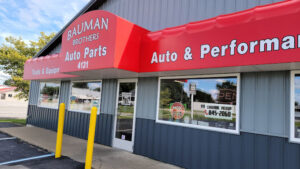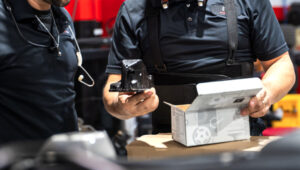Nationwide outreach also educates lawmakers about proposed state legislative policies — Right to Repair — and practices that may actually encourage it
Washington, D.C.—A nationwide outreach and education campaign by Diesel Technology Forum (DTF) is underway to discourage tampering with diesel engines, as well as to educate lawmakers about the proposed state legislative policies and practices that may actually encourage it.
“Diesel engines are highly coveted tools of work that power key sectors of our economy because of their unique combination of efficiency, power, durability, and reliability. Manufacturers have invested billions of dollars over the past 20 years to reduce emissions and reach the near zero levels we have today, while meeting federal clean air requirements, and making the equipment more efficient and productive,” said DTF Executive Director Allen Schaeffer.
He added, “To ensure the full benefit from these advanced engines continues to be realized, it is essential that the equipment is properly fueled and maintained in accordance with manufacturer specifications. It’s also essential that we work together to directly prevent tampering with emissions control systems as well as the proposed policies that jeopardize clean air benefits and the safety of the equipment to the operators and the public.”
The educational campaign involves directly messaging state and local policymakers, as well as diesel users about the proper care and use of diesel engines and equipment. The campaign is ramping up as a number of state legislatures are considering so called “right to repair or fair repair” legislation impacting farm and other equipment.
These efforts generally seek to adopt new laws that would require manufacturers to provide independent repair shops and customers direct access to engine computer scan tools and proprietary codes to allow repair of the equipment. These provisions open the door to dangerous modifications of the engine emissions control system and its components, DTF stated, adding that under interpretations of EPA and California Air Resources Board regulations, manufacturers could also be held liable for providing a “defeat device” to the market that allows end-users to circumvent certain engine/machine performance inhibitors related to emission controls.
The U.S. EPA Air Enforcement Division (AED) released a substantial report in November 2020 regarding the incidence of tampering with diesel engines and emissions controls, identifying software modifications to engine emissions control units. While the EPA report focused on pickup trucks and some commercial vehicles it did not directly quantify the extent of tampering in off-road engines and equipment, although the agency had reason to believe this conduct occurs within most or all categories of vehicles and engines. That includes commercial trucks, passenger vehicles, pickup trucks, motorcycles, forestry equipment, and agricultural equipment.
Manufacturers of diesel engines and equipment are subject to more than a dozen specific EPA regulations and provisions found in the Clean Air Act that dictate a wide range of federal requirements about building and warranting their products for emissions performance. These include reference to testing to determine conformance to regulations, requirements for achieving the “useful life” provisions over which vehicles/engines shall comply with emission standards, degradation factors, in-use testing requirements, and making tamper resistant emissions systems. Under these requirements it is a crime to knowingly falsify, tamper with, render inaccurate, or fail to install any “monitoring device or method” required under the CAA (42 U.S.C. § 7413(c)(2C).
Recent reports about pickup truck owners “tuning” their engines to higher performance levels through software code programming or chipping (see here, here, here and here). These practices have led to some publicized, highly visible, and offensive incidents where engine programming changes enable pulses of over-fueling. That results in dense smoke coming from the exhaust, a practice often referred to as “rolling coal.”
“Advanced diesel emissions control systems are proven,” Schaeffer said. “They deliver near zero emissions performance in all newer engines and equipment. It is the responsibility of the owners to properly fuel and maintain the engines and equipment, as well as ensure that these systems are not tampered with. We all need to work together to educate equipment owners, those employed at independent repair shops, and legislators, to put an end to this dangerous and illegal practice. Equally as important, we must work together to make sure it isn’t facilitated through unnecessary, so called right to repair or fair repair legislation. It is bad for air quality, it jeopardizes operator safety, and the safety of anyone traveling on the roads with these vehicles and equipment.”







Comments are closed.